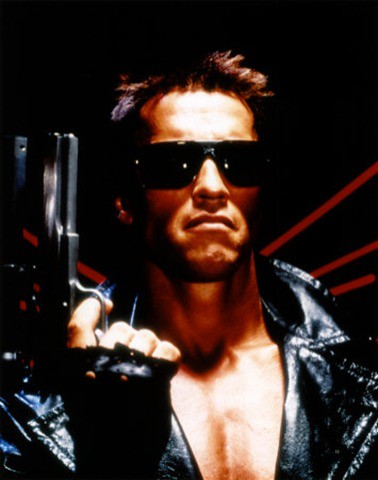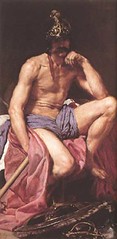What’s in a name? Well, a lot I’d like to argue, actually a considerable amount when it comes to both the naming of the novel and the naming of the characters contained within. But as the title of this post suggests, I’m just going to stick with character names.
I feel there are really three key points in naming a character, I’ll break these down now, and ask at the end if you agree.
- Character back story / history
- Etymology and connotations of ‘regular’ names
- Meaning and connotations of ‘regular’ words and using them to 'create' names
Firstly, you need to know your characters back story, thoroughly. You need to know everything about them, from what they eat to pitch of their sigh when they’re being fucked over. A truly great example of this is how Alan Moore did this with Watchmen.
He brings everything out of the character and places it right in front of you. Not only through the narrative and story boards, but the detailed background that is drawn upon in the biographical portraits of each of the characters throughout the graphic novel. I’d like to know Alan’s process, whether he named the characters first, or after he had written such detailed background to them, then found their names.
I’d say go with the second option. With all but one example in the course of my novel I’ve figured out exactly what sort of character they are, what they live and breath, and given their name based on these findings. The other example? Well, I had the name in my head for such a long time that the eventual recipient was already pretty much flesh and bone before I even put finger to keyboard. We’ll get onto him another time.
The second point I believe is to really know a little etymology of names. Their backgrounds and meanings, the thought processes that have taken place and the conventions that have been laid over the duration of time. All of these added up will help contribute to the name that will hopefully add volume to the character.

The connotations that some names have also have to be given some thought. For instance, the majority of the western world will associate the name ‘Arnold’ with themes such as power and strength, due largely to big, bad Arnold Schwarzenegger. He has built up his name, his life brand, over the years to symbolise that of a hero, there’s no doubt. If you have a weak, subdued character called Arnold, it’s unlikely to work for the reader.
I’d say thirdly, and lastly, are the possibilities of using any word, what these words make people thing of, and even making up words. Obviously this is what a lot of authors do, pull letters out of the air, arrange them in a way that sounds like what the character should be. Whether this is through some sort of onomatopoeia, or putting together words and letters that look different from, but when pronounced give a word that will emote some sort of reaction.
My favourite example of this is a name I’ve used in my own book. That of ‘Mars Trednme’. I won’t go into too much depth, but here you have an example of a man, volatile and angry but short in stature and vulnerable at the same time. He needed a name that encompassed his violent, rage fuelled nature but also the potential for his downfall at the same time.
 Mars – the God of War was an obvious choice, the second name was slightly harder. I decided to take a sentence and use ‘Trednme’ out of the words ‘tread on me’. Together, I like to think they create a name that encompasses the character, and like I said, brings volume and presence to him.
Mars – the God of War was an obvious choice, the second name was slightly harder. I decided to take a sentence and use ‘Trednme’ out of the words ‘tread on me’. Together, I like to think they create a name that encompasses the character, and like I said, brings volume and presence to him.
So there’s my naming process. The lead protagonist’s name, I believe, is key to his character, but I’m not giving it away just yet. I will come to talk about this gigantic beast soon enough. I’m actually really interested in how other authors have gone about naming their characters. I wouldn’t feel my personal experience is one that would be considered normal. Perhaps it does ahead to general logic and convention that other authors use, however, I’ve not used any book or source material to put my process together, it’s just what works for me.
This post’s Aspirers Mark is Steffi aka Nym, from Nymeria87. A 21 year old currently one novel into her very own fantasy trilogy, she’s got big ambitions, and why not? Full life ahead of her I can only wish her luck with the trilogy. Also, the blog is great, a really cool resource for everything from book reviews to insights on publishing, with the occasional inspired rant. Read and enjoy.


8 Comments
1 Nymeria87 wrote:
Hi Richard,
always glad to see that my rants are a source of inspiration ;)
I see that you also have a character whose name is based on Greek mythology. Personally, I think it's funny how character names and their implications work. Strangely enough, one of my main characters Ares started to develop some of aspects of his personality in accord with his mythological namesake, but in the end this happened rather unintentional. Maybe it's been a subconscious thing, but in the end he definitely has some moments when he lives up to the general connotations that come along with his name.
Personally, naming characters is as much a subconscious thing as it is intentional - in the end it just depends. For example, I sort of built my naming system, if you want to call it that, around a certain pattern. There are a lot of ae's and y's that occur in places as well as character names, some of them actually hint at Greek mythology, some come totally out of the blue.
I definitely agree that a character's background and personality influences your choice of name though. Jay for example is sort of a tomcat at times who sort of seems to be torn between genders (and the rest of the crew loves to poke fun at the gender neutrality of her name) There are definitely some fun things to do with character names :)
Good luck with your own writing!
2 Richard Galbraith wrote:
thanks for the comment nym. Interesting to hear your method, i genuinely like how you keep a certain pattern around the naming by singling out a few key letters.
I guess this could be elaborated on to hint at relationships between characters, teasing the reader etc.
3 wordvixen wrote:
Actually, when I hear Arnold, I think of Arnold Rimmer from Red Dwarf, so any Arnolds I read about automatically become whiny, annoying, megalomaniacs in my head. :) That's one of the reasons I like to avoid normal names for key characters- so many people have different associations with different names. For instance, I automatically dislike anyone named Mike, and it takes a long time for me to get used to Mikes after meeting them.
Michaels and Matthews in novels are automatically prats in my mind.
4 Colin Mercer wrote:
Interesting insight Rich, i am going to pick up a similar point to that of wordvixen, my association for Arnold would be "hey arnold", the cartoon. A very different picture painted in the mind compared to Arnie.
I also agree with nveria87, in naming conventions are subconscious as much as they are conscious. without knowing it i have counted out names due to personal experiences with a name, a bad bus driver, a bad person or alternatively wanted to use (or incorporate) the name of someone close and dear. etc etc.
Cheers x
5 Lolly wrote:
You are one intriguing character Mr Galbraith. Your post makes me want to write... looking forward to the next installment...
6 HitchcockBlonde wrote:
The funny thing is, whatever name you chose will seem meaningful / appropriate simply because, to the reader, you have 'chosen' it (even if you don't think you have).
You can try and be as neutral as possible and call your main man John Smith and some school kid will still write an essay on how you're purposefully subverting the blank canvas blandness of its everyman cultural significance to show just how individualistic your protagonist is.
You could call someone Wilbur Force and one reader will assume they're a bodybuilder, another a gay playwright from the 19thC. As Col and Wordvixen say, it's all subjective.
Very 'pointed' names can seem painfully mannered. But then every name is 'pointed' - and I also love Dickens - so you may as well have fun and go for Antihero Majestic.
7 Alex Moore wrote:
Great insight. I once named a character Farin because the word (oddly enough) reminded me of Fe, the symbol for Iron.
I'll break form and carry the conversation over to novel titles, since you made me think of it: Blake Snyder suggests that crafting the title is vital to the success of the project:"A great title must have irony and tell the tale," he writes. Of course, that's easier said than done...
8 Richard Galbraith wrote:
thanks again everyone for your comments!
@hitchcockblonde; agreed, people will read into anything and everything, names in particular i feel, i've riddled a few of mine with some subversive meaning and connotations, hopefully one day to play tricks on the mind of english classes everywhere...hah...yes, i'm sure
@alex moore; i think you've just inspired my next post, naming the book itself is something i've not given too much thought to, in complete contrast to actually naming characters
One Trackback